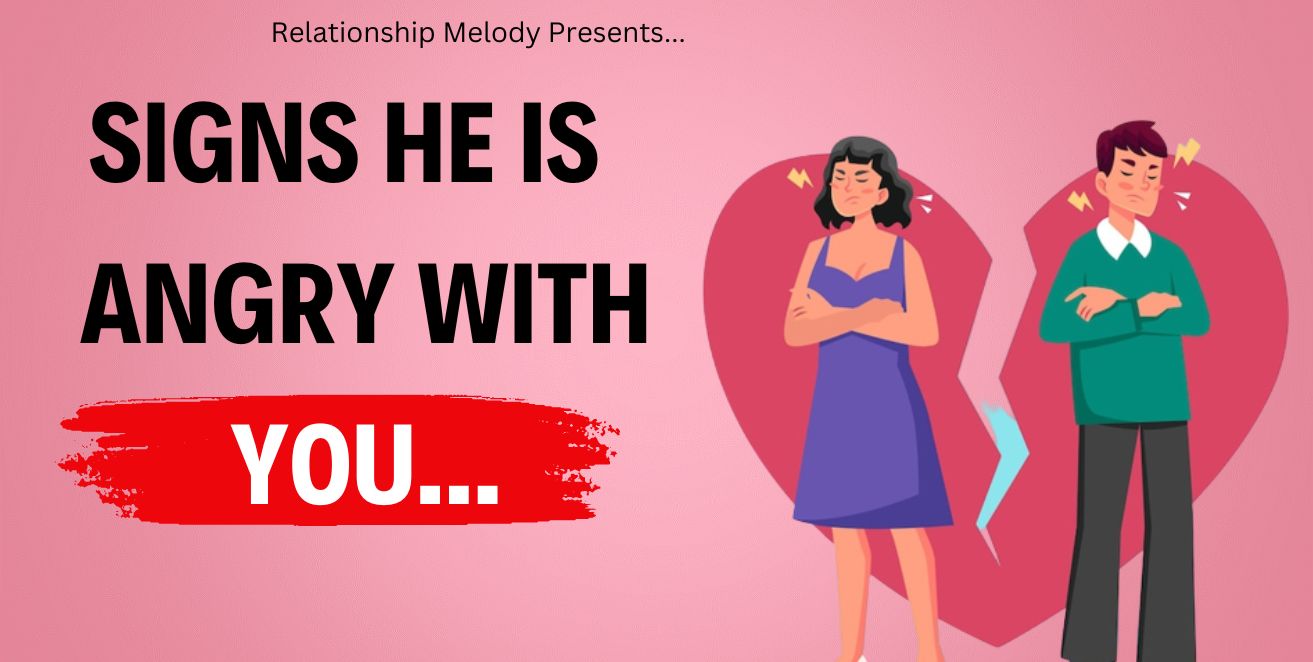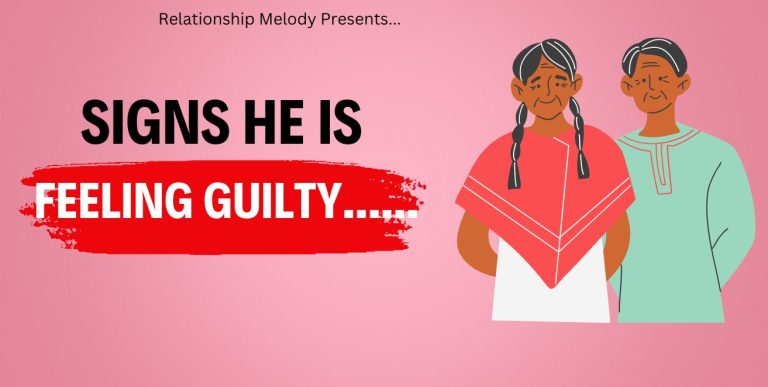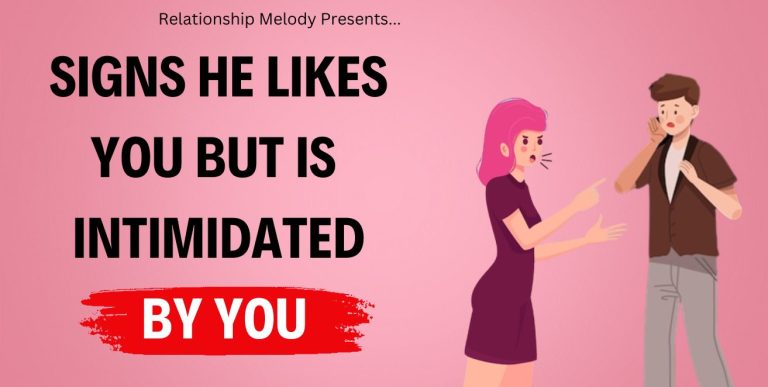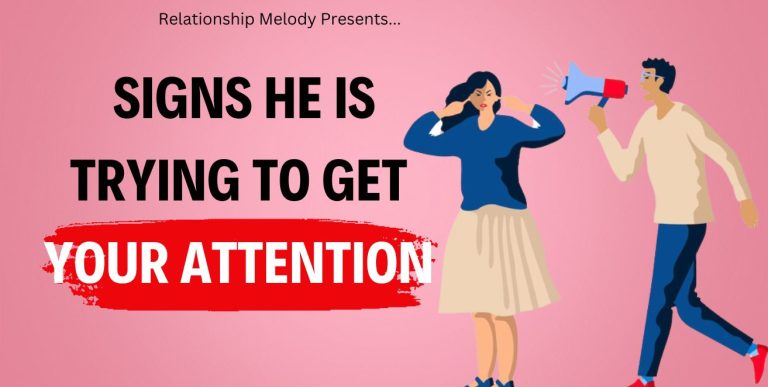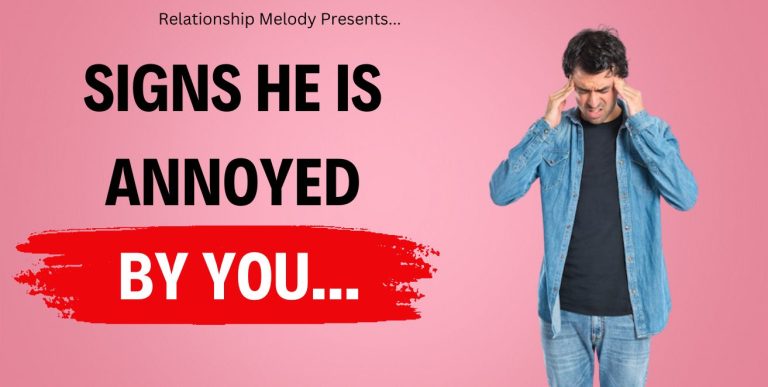25 Signs He Is Angry With You
In any relationship, it’s important to be attuned to your partner’s emotions, especially when they’re upset or angry.
However, sometimes it can be challenging to decipher their feelings accurately. If you’ve been wondering whether your significant other is upset with you, this blog post is here to help.
We’ve compiled a list of 25 signs that may indicate your partner is angry with you. By recognizing these signals, you can address the issue promptly and work towards resolving conflicts healthily and constructively.
25 Signs He Is Angry With You
These are 25 signs to know.
#1 Change in Communication Patterns:
When your partner is angry with you, their communication patterns may undergo a noticeable shift. They may become distant, avoiding eye contact or maintaining a cold tone in their responses.
This change in behavior serves as a subtle indication of their displeasure. By withdrawing from open and warm communication, they create a barrier between you, making it evident that something is amiss.
#2 Increased Criticism:
Anger often leads to heightened criticism. If your partner starts finding fault with you more frequently, even for trivial matters, it may be a sign that their anger is seeping into their interactions with you.
This increased criticism serves as a way for them to express their frustration or disappointment, as they focus on negative aspects and overlook positive ones.
#3 Avoidance of Physical Contact:
Physical touch is a powerful means of connection in a relationship. When your partner is angry, they may intentionally avoid physical contact with you.
This could include refraining from hugs, pulling away during intimate moments, or creating a physical distance between you.
Their reduced inclination for physical affection signals their emotional state, as anger hinders their willingness to be physically close and vulnerable.
#4 Passive-Aggressive Behavior:
Passive-aggressive behaviour is a common manifestation of suppressed anger. Your partner may exhibit subtle acts of hostility, and sarcasm, or engage in behaviours that intentionally undermine or ignore your needs.
This indirect expression of anger allows them to release their frustration without openly confronting the issue. They may use sarcastic comments or employ subtle tactics to indirectly communicate their displeasure.
#5 Sudden Mood Swings:
When someone is angry, their emotions can become volatile and unpredictable. If your partner experiences abrupt shifts in their mood, seemingly going from happy to furious without an apparent reason, it may indicate that they are harbouring anger that they haven’t communicated.
These sudden mood swings are a clear sign that something is bothering them and needs to be addressed.
#6 Stonewalling:
Stonewalling refers to the act of shutting down emotionally and refusing to engage in meaningful conversations or discussions. When your partner stonewalls, they may become unresponsive, withdraw from interactions, or even become emotionally unavailable.
This behavior is a defense mechanism employed to protect themselves from further conflict or to avoid expressing their anger directly. Stonewalling can lead to a breakdown in communication and hinder the resolution of underlying issues.
#7 Increased Argumentativeness:
Anger often fuels an increase in arguments. If your partner becomes more argumentative, particularly over trivial matters or things that wouldn’t typically provoke such a response, it may be a sign that their anger is influencing their behaviour.
They may seek opportunities to vent their frustrations or engage in heated debates as a way to express their discontent.
#8 Excessive Defensiveness:
When someone is angry, they tend to become more sensitive and defensive. Your partner may react strongly to any perceived criticism or even innocuous comments, perceiving them as attacks.
They may respond with defensiveness, denial, or counter-accusations, as they attempt to protect themselves and redirect the focus away from their anger.
#9 Reduced Affection:
Anger can lead to a decline in affectionate behaviour. Your partner may withdraw gestures of love, such as saying “I love you” less frequently, refraining from acts of kindness, or showing a general lack of warmth.
This reduction in affection serves as a clear signal of their emotional state, as anger diminishes their desire to express love and closeness.
#10 Unwillingness to Compromise:
Anger can make a person rigid in their beliefs and resistant to compromise. If your partner becomes uncompromising or unwilling to find common ground, it may be an indication that their anger is clouding their judgment.
They may adopt an “all or nothing” mindset, making it challenging to reach resolutions or find a middle ground in conflicts.
#11 Lack of Eye Contact:
Eye contact is an essential aspect of open and honest communication. When your partner avoids making eye contact during discussions or conversations, it often signifies their discomfort or anger.
They may find it difficult to meet your gaze when they are upset, as it exposes their vulnerability and the intensity of their emotions.
#12 Verbal Aggression:
Anger can lead to verbal aggression, where your partner resorts to harsh words, shouting, or even name-calling.
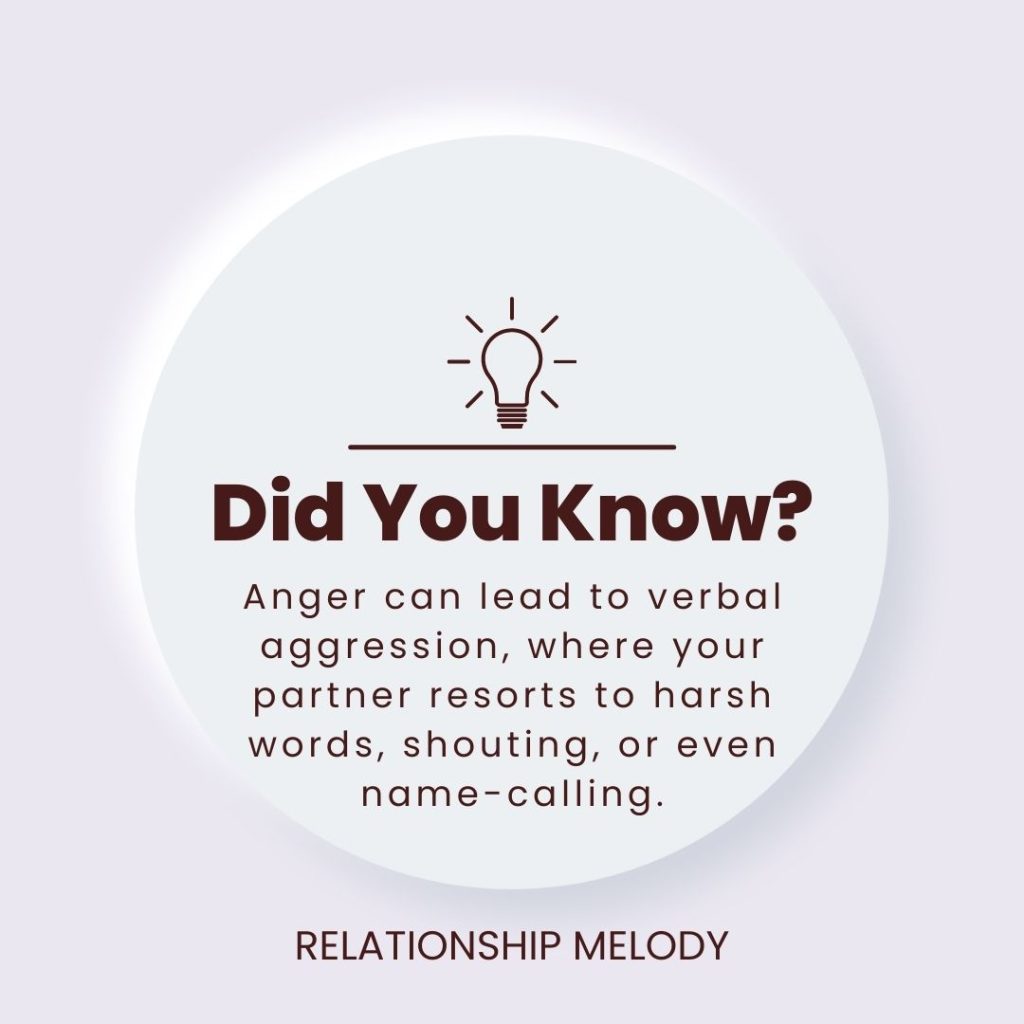
They may unleash their anger through aggressive language, intending to hurt or intimidate you. Verbal aggression is an unhealthy way of expressing anger and can cause emotional harm within the relationship.
#13 Increased Criticism of Others:
Sometimes, when your partner is angry with you, they may indirectly express their frustration by frequently criticizing others around them.
By directing their negative energy towards others, they create a buffer zone to avoid directly confronting the issue between you two.
Pay attention if they start excessively criticizing friends, family members, or colleagues, as it may be a displaced expression of their anger towards you.
#14 Unexplained Absences:
Anger can lead individuals to seek distance or avoid confrontations. If your partner frequently disappears or spends excessive time away from home without providing a valid explanation, it could be a sign of their anger.
These unexplained absences serve as a way for them to create space and time to process their emotions or to avoid situations that may trigger further conflict.
#15 Changes in Sleep Patterns:
Emotional turmoil, such as anger, can disrupt one’s sleep patterns. If your partner begins experiencing difficulties falling asleep, suffers from insomnia, or starts sleeping excessively, it may be an indication of their emotional state.
Anger can create inner turmoil, making it challenging for them to find rest and peace during sleep.
#16 Unresponsiveness to Apologies:
When you apologize to your partner, and they respond with indifference or dismissiveness, it suggests that their anger has deep-rooted causes.
Their lack of responsiveness indicates that they are still holding onto their anger and haven’t yet found a way to let it go or address the underlying issues. Unresponsiveness to apologize prolongs the cycle of conflict and makes it harder to restore harmony in the relationship.
#17 Lack of Engagement:
When your partner is angry, they may withdraw from shared activities or show disinterest in things they once enjoyed with you. They may become emotionally detached and disengaged, displaying a lack of enthusiasm or involvement.
This withdrawal of engagement signals their anger and their reluctance to invest energy into the relationship while unresolved issues persist.
#18 Passive Resistance:
Passive resistance is a subtle way of expressing anger without openly confronting it. Your partner may intentionally delay or resist fulfilling their responsibilities, such as household chores or shared commitments, as a means of indirectly expressing their displeasure.
It’s a passive-aggressive approach to communication that allows them to assert their anger without engaging in direct conflict.
#19 Excessive Criticism of Your Choices:
If your partner suddenly starts questioning or criticizing your decisions more frequently than before, it may be a sign of their anger.
They may undermine your choices or express dissatisfaction with your actions, highlighting areas where they believe you have made mistakes or where your decisions do not align with their expectations. This excessive criticism reflects their disapproval and anger towards you.
#20 Increased Silence:
Silence can be deafening, especially when it becomes a prevalent feature of your interactions with your partner. If they start displaying long periods of silence during conversations, particularly when discussing important matters or conflicts, it often indicates their anger.
Their silence is a way of withdrawing and withholding communication, making it challenging to address the underlying issues.
#21 Change in Body Language:
Anger can manifest in various physical cues. Pay attention to your partner’s body language, such as crossed arms, clenched fists, or tense muscles. These non-verbal signs often accompany anger and indicate their emotional state.
Their defensive posture and physical tension reflect their inner turmoil and can provide insights into their unexpressed anger.
#22 Lack of Support:
When your partner is angry with you, they may withdraw emotional support or become less empathetic towards your feelings. They may dismiss your emotions, invalidate your experiences, or fail to offer the comfort and understanding you typically receive from them.
This lack of support is a reflection of their anger and their struggle to connect with you on an emotional level.
#23 Unusual Outbursts of Anger:
If your partner displays sudden and intense outbursts of anger towards situations or issues that wouldn’t typically provoke such a response, it’s a clear sign that their anger towards you is influencing their overall emotional state.
These unexpected eruptions of anger can catch you off guard and indicate that underlying tensions need to be addressed.
#24 Withdrawal from Social Interactions:
Anger can lead to isolation and withdrawal from social interactions. If your partner starts avoiding social events or spends less time with friends and family, it may signal their anger towards you.
They may seek solitude as a way to process their emotions or deliberately distance themselves from situations that might exacerbate their anger.
#25 Intentional Ignoring:
Intentional ignoring is a deliberate act where your partner disregards your presence or dismisses your opinions. They may choose to ignore your attempts to communicate or minimize your importance in their life.
Intentional ignoring is a passive-aggressive behavior that reflects their anger and their unwillingness to engage with you.
Learn more: 25 Signs He Is Always Thinking About You.
Conclusion:
Recognizing the signs that your partner is angry with you is crucial for maintaining a healthy relationship. It’s essential to remember that anger is a natural emotion, and it’s how we address and resolve it that makes a difference.
Open and honest communication is key to understanding your partner’s feelings and finding constructive ways to address the underlying issues.
By being attentive to these 25 signs and addressing conflicts with empathy and patience, you can foster a stronger bond and work towards a happier, more harmonious relationship.
Liked Our Articles?
Our Patreon link: https://www.patreon.com/RelationshipMelody

Welcome to Relationship Melody! Our website is dedicated to all things on relationships, dating, and love! We are passionate about helping you navigate the ups and downs of love, and our goal is to provide you with valuable insights and information that will make your journey toward a fulfilling relationship smoother and more enjoyable.

